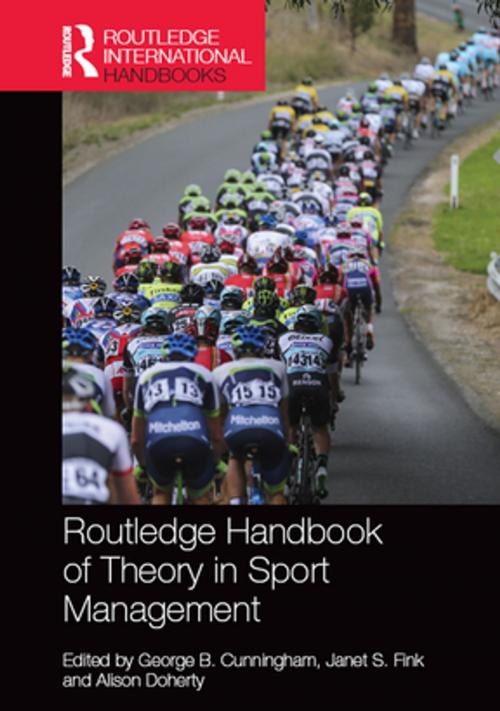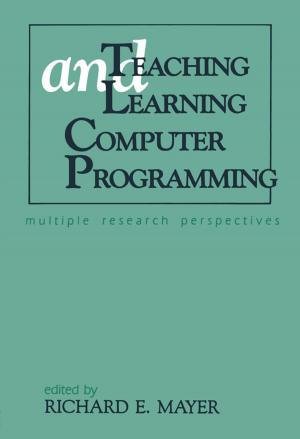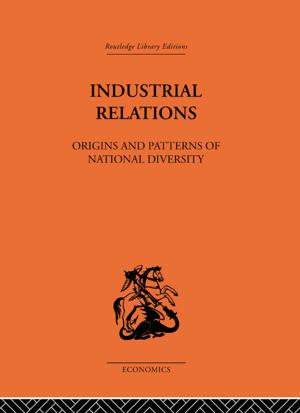Routledge Handbook of Theory in Sport Management
Nonfiction, Sports, Reference, Business & Finance, Management & Leadership, Management| Author: | ISBN: | 9781317621157 | |
| Publisher: | Taylor and Francis | Publication: | October 16, 2015 |
| Imprint: | Routledge | Language: | English |
| Author: | |
| ISBN: | 9781317621157 |
| Publisher: | Taylor and Francis |
| Publication: | October 16, 2015 |
| Imprint: | Routledge |
| Language: | English |
Theory is an essential element in the development of any academic discipline and sport management is no exception. This is the first book to trace the intellectual contours of theory in sport management, and to explain, critique and celebrate the importance of sport management theory in academic research, teaching and learning, and in the development of professional practice.
Written by a world-class team of international sport management scholars, each of whom has taken a leading role in developing a particular theory or framework for understanding sport management, the book covers the full span of contemporary issues, debates, themes and functional approaches, from corporate social responsibility and diversity to strategy, marketing and finance. Every chapter explores a key theoretical approach, including an overview of that theory, a discussion of the process of theory development and of how the theory has been employed in research, practice or teaching, and outlines directions for future research in that area. Each chapter includes cases and examples, as well as short illustrative commentaries from people who have used that particular theory in their work, and attempts to highlight the theory-practice links, or gaps, in that area.
For a fully-rounded understanding of what sport management is and how it should be studied, taught and practiced, a thorough grounding in theory is essential. The Routledge Handbook of Theory in Sport Management is therefore important reading for all advanced students, researchers, instructors, managers and practitioners working in this exciting field.
Theory is an essential element in the development of any academic discipline and sport management is no exception. This is the first book to trace the intellectual contours of theory in sport management, and to explain, critique and celebrate the importance of sport management theory in academic research, teaching and learning, and in the development of professional practice.
Written by a world-class team of international sport management scholars, each of whom has taken a leading role in developing a particular theory or framework for understanding sport management, the book covers the full span of contemporary issues, debates, themes and functional approaches, from corporate social responsibility and diversity to strategy, marketing and finance. Every chapter explores a key theoretical approach, including an overview of that theory, a discussion of the process of theory development and of how the theory has been employed in research, practice or teaching, and outlines directions for future research in that area. Each chapter includes cases and examples, as well as short illustrative commentaries from people who have used that particular theory in their work, and attempts to highlight the theory-practice links, or gaps, in that area.
For a fully-rounded understanding of what sport management is and how it should be studied, taught and practiced, a thorough grounding in theory is essential. The Routledge Handbook of Theory in Sport Management is therefore important reading for all advanced students, researchers, instructors, managers and practitioners working in this exciting field.















